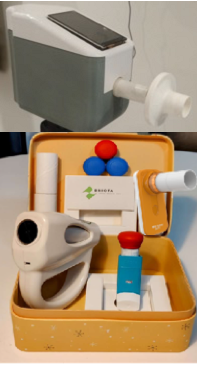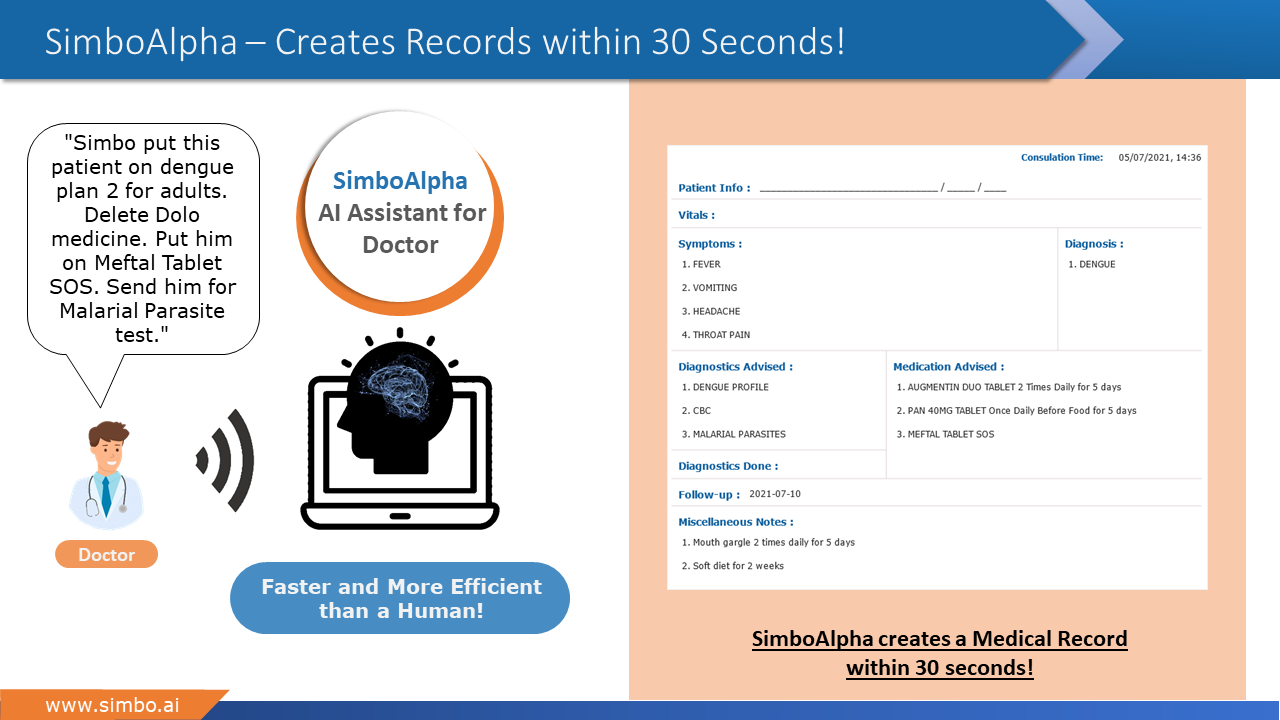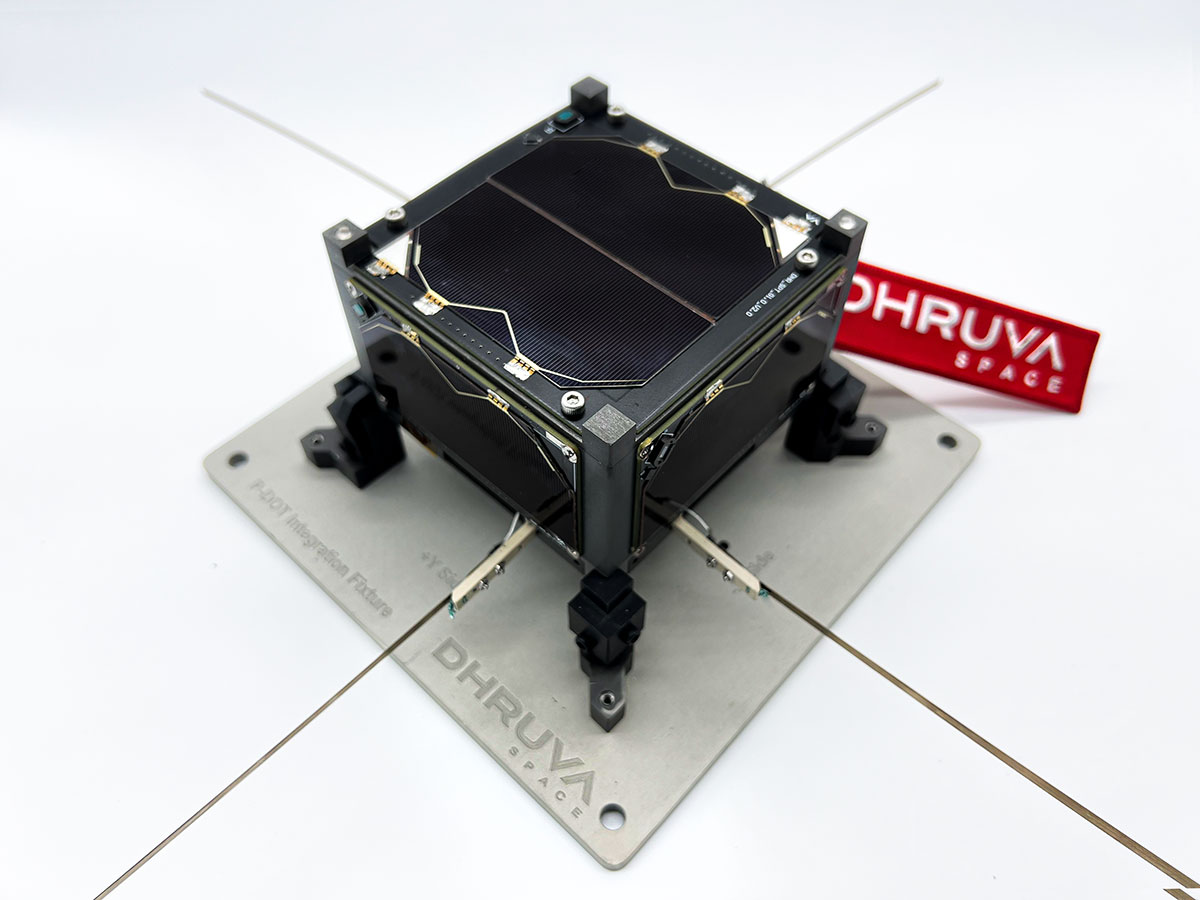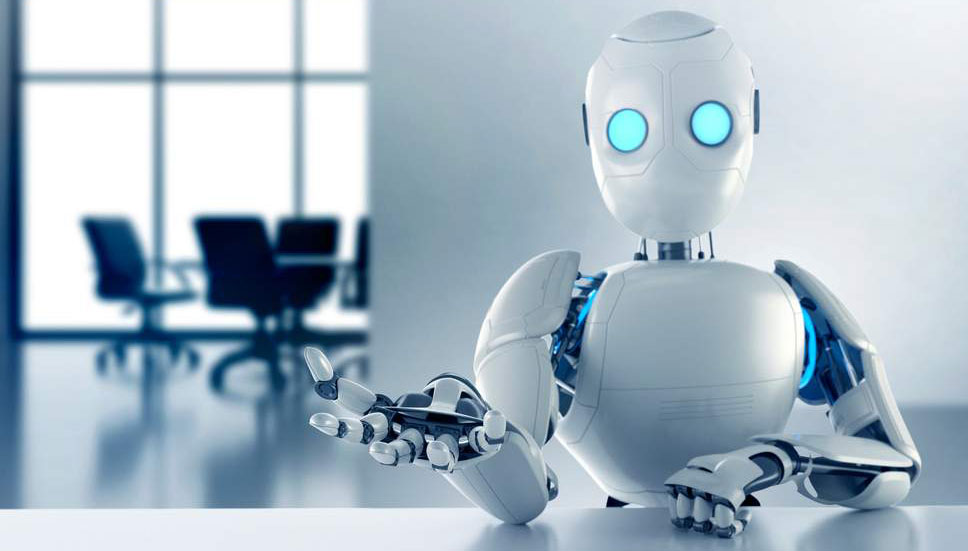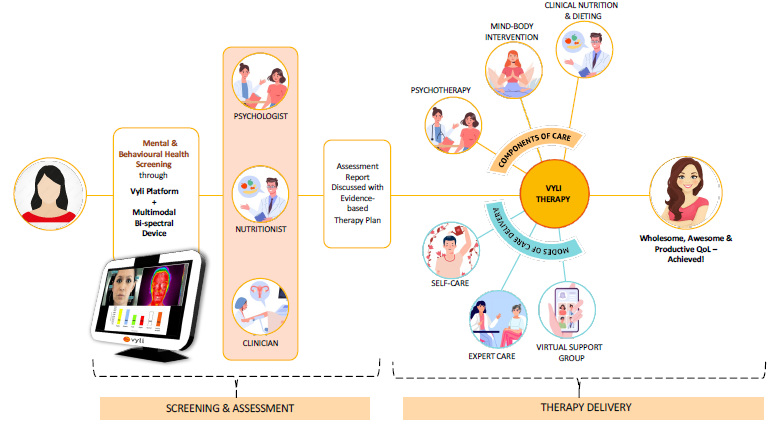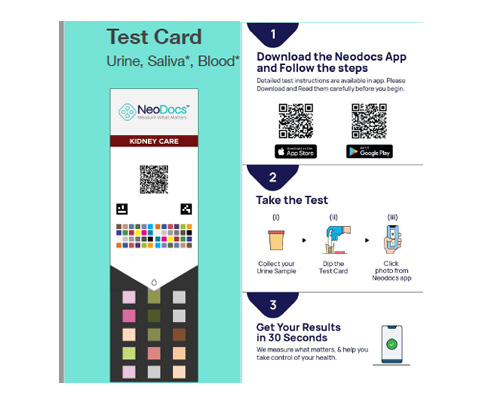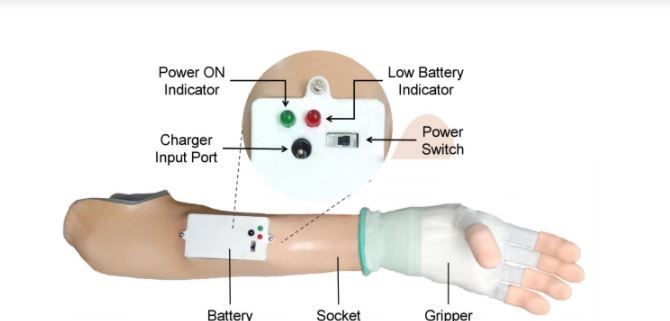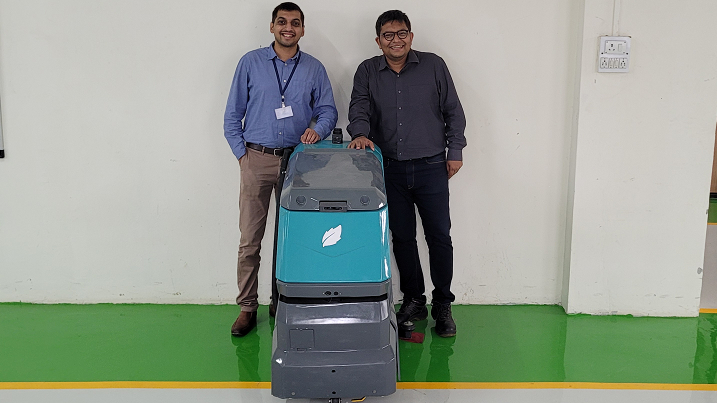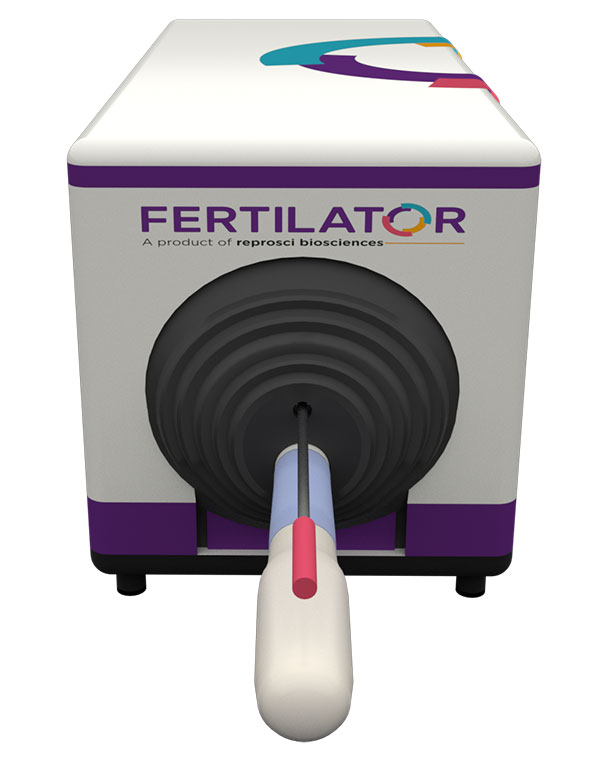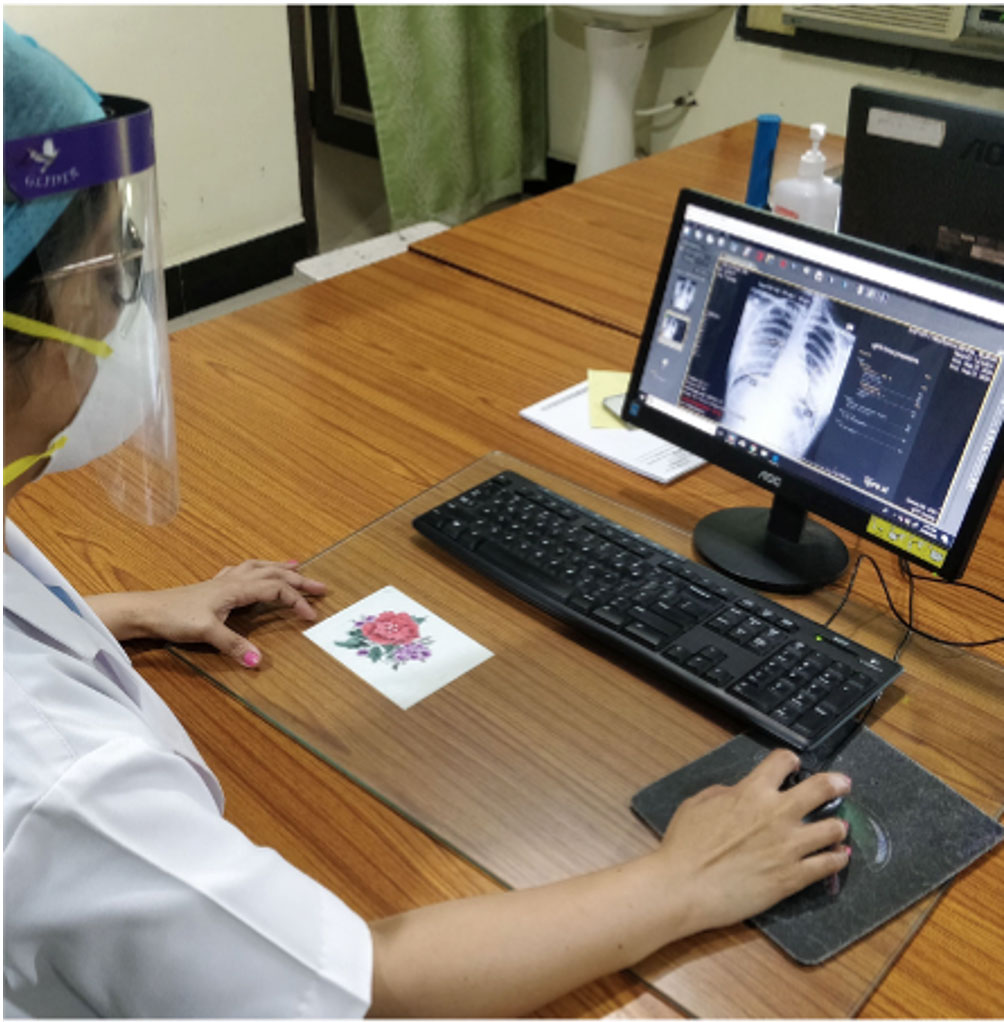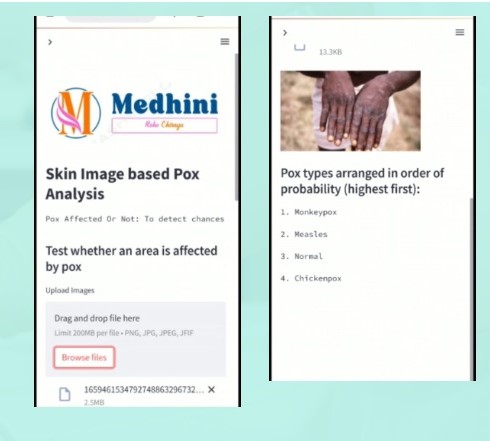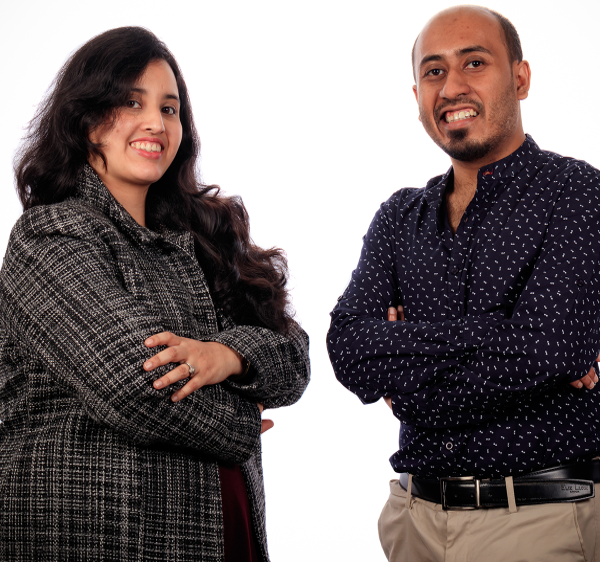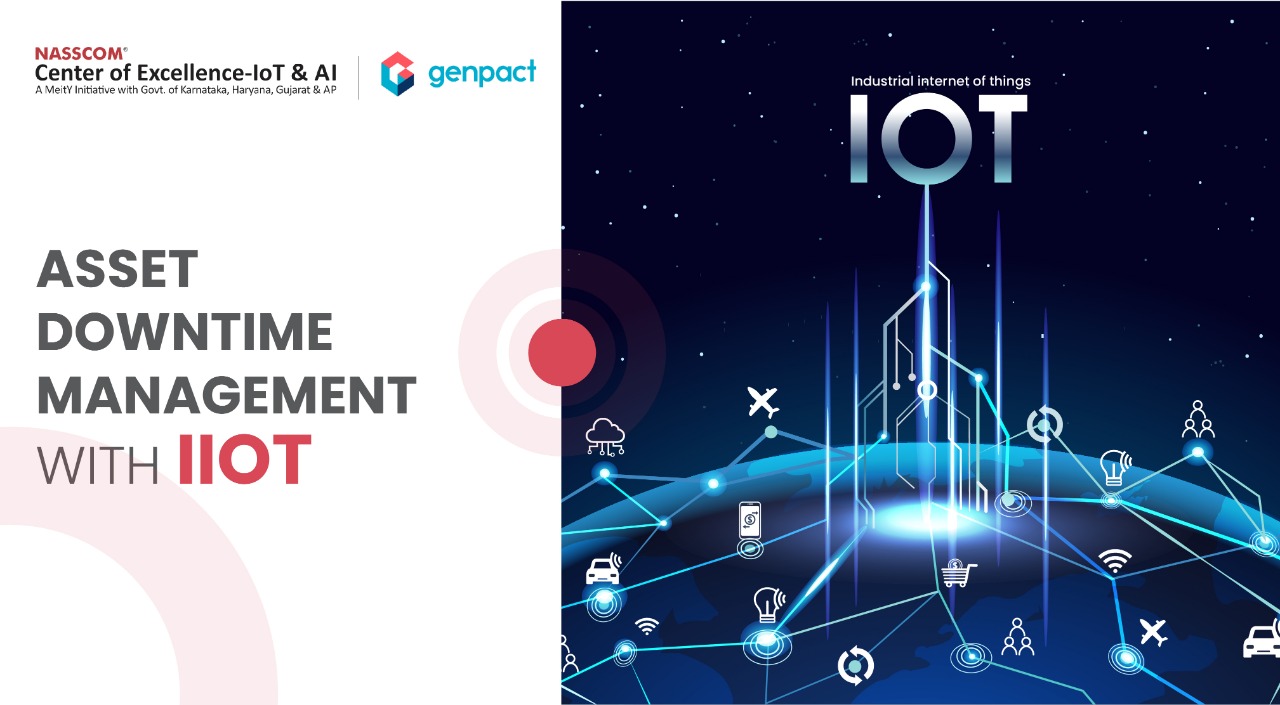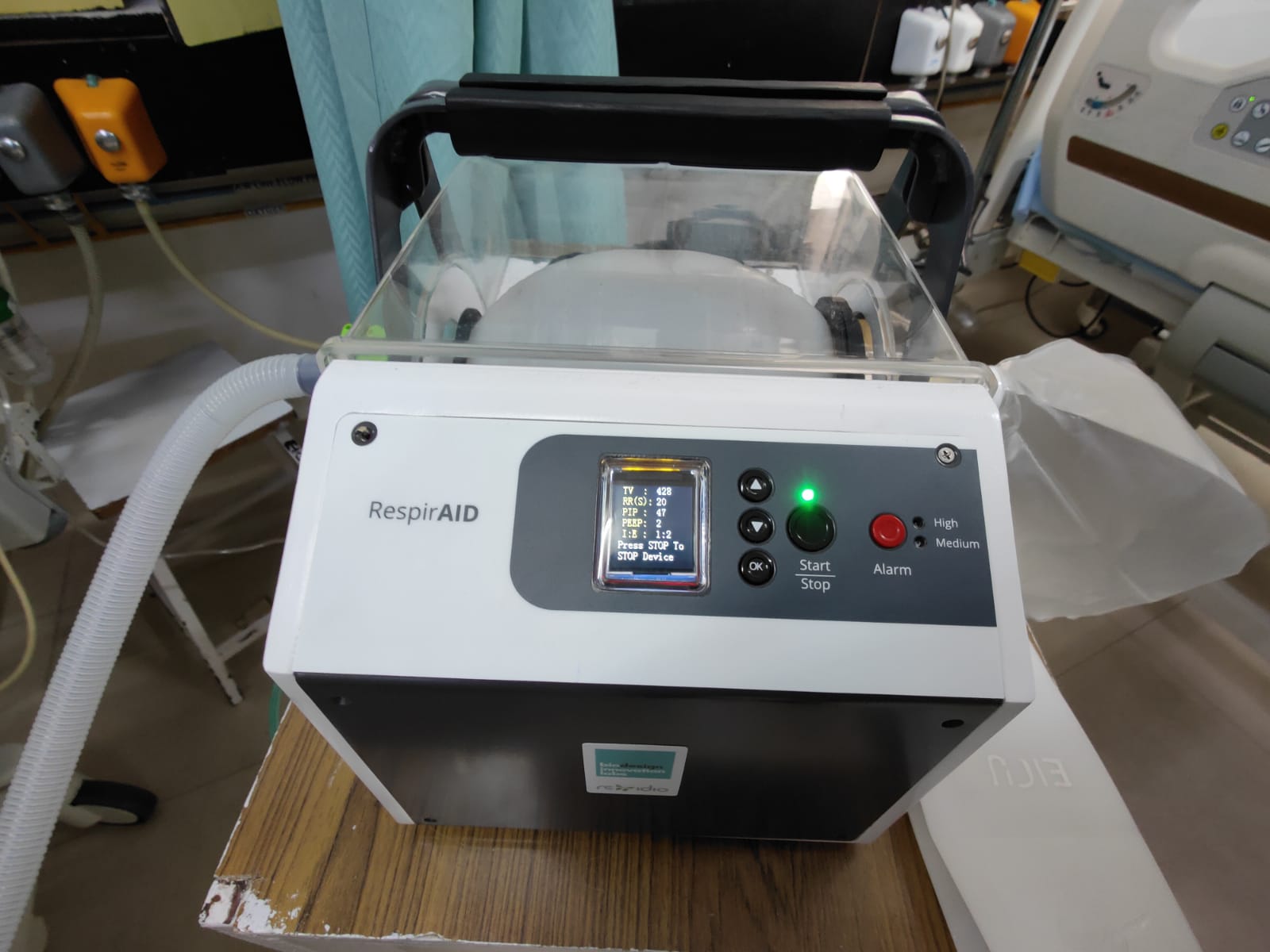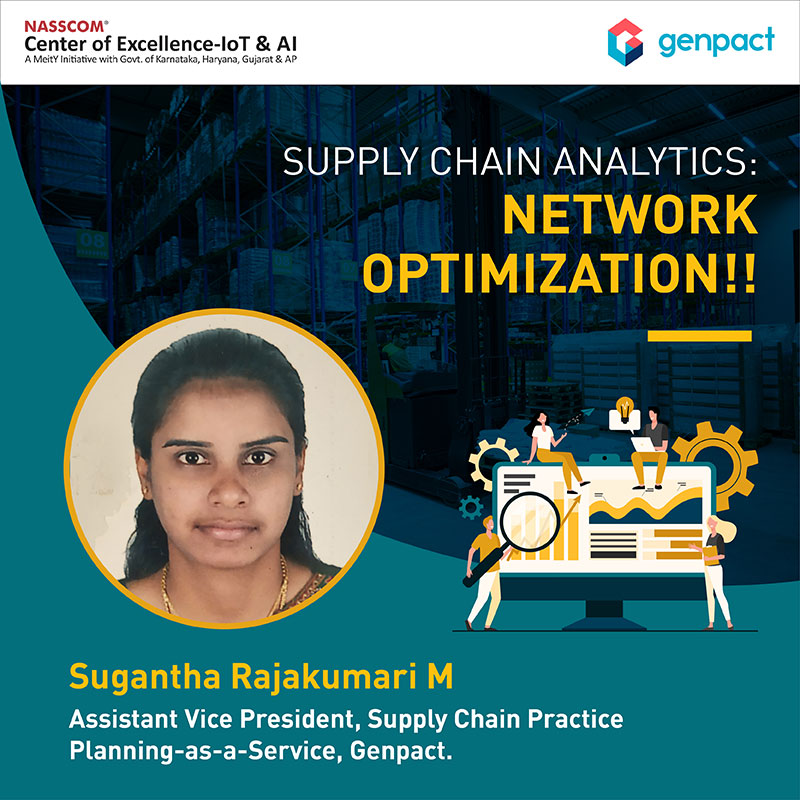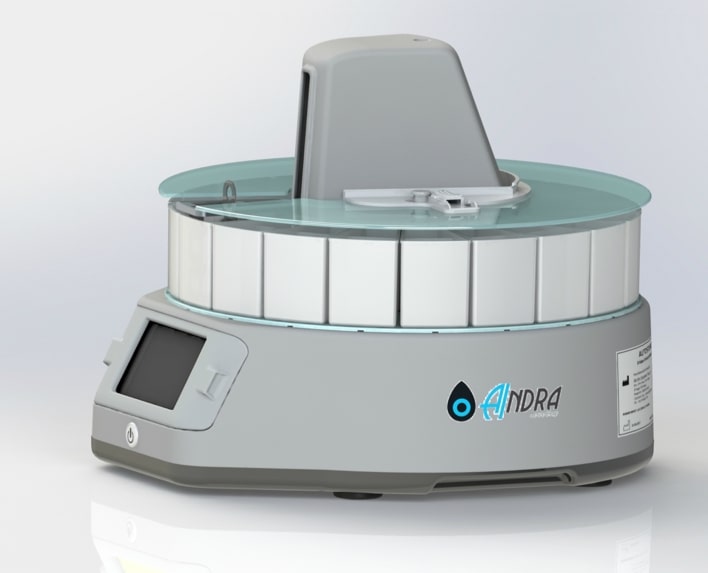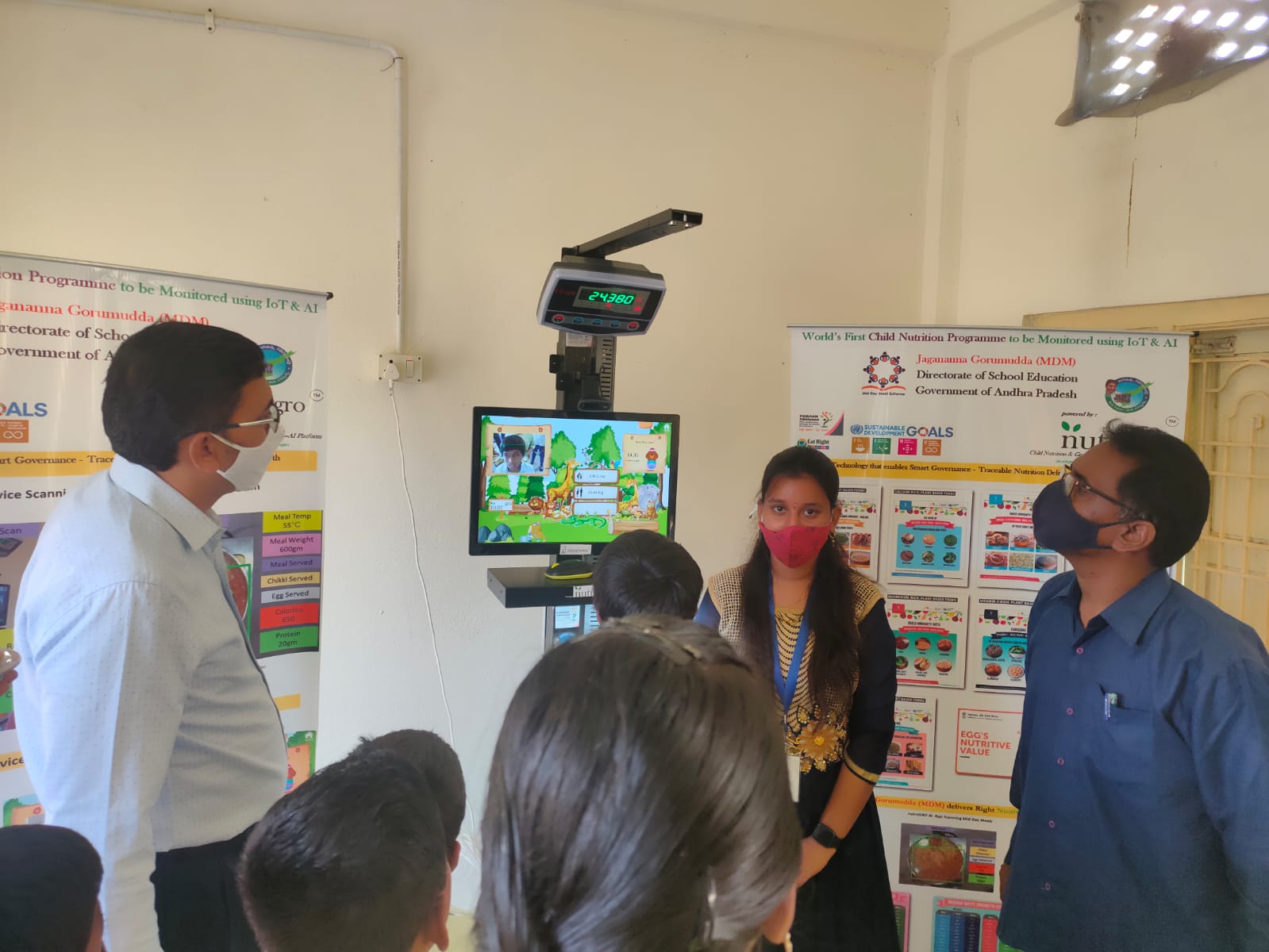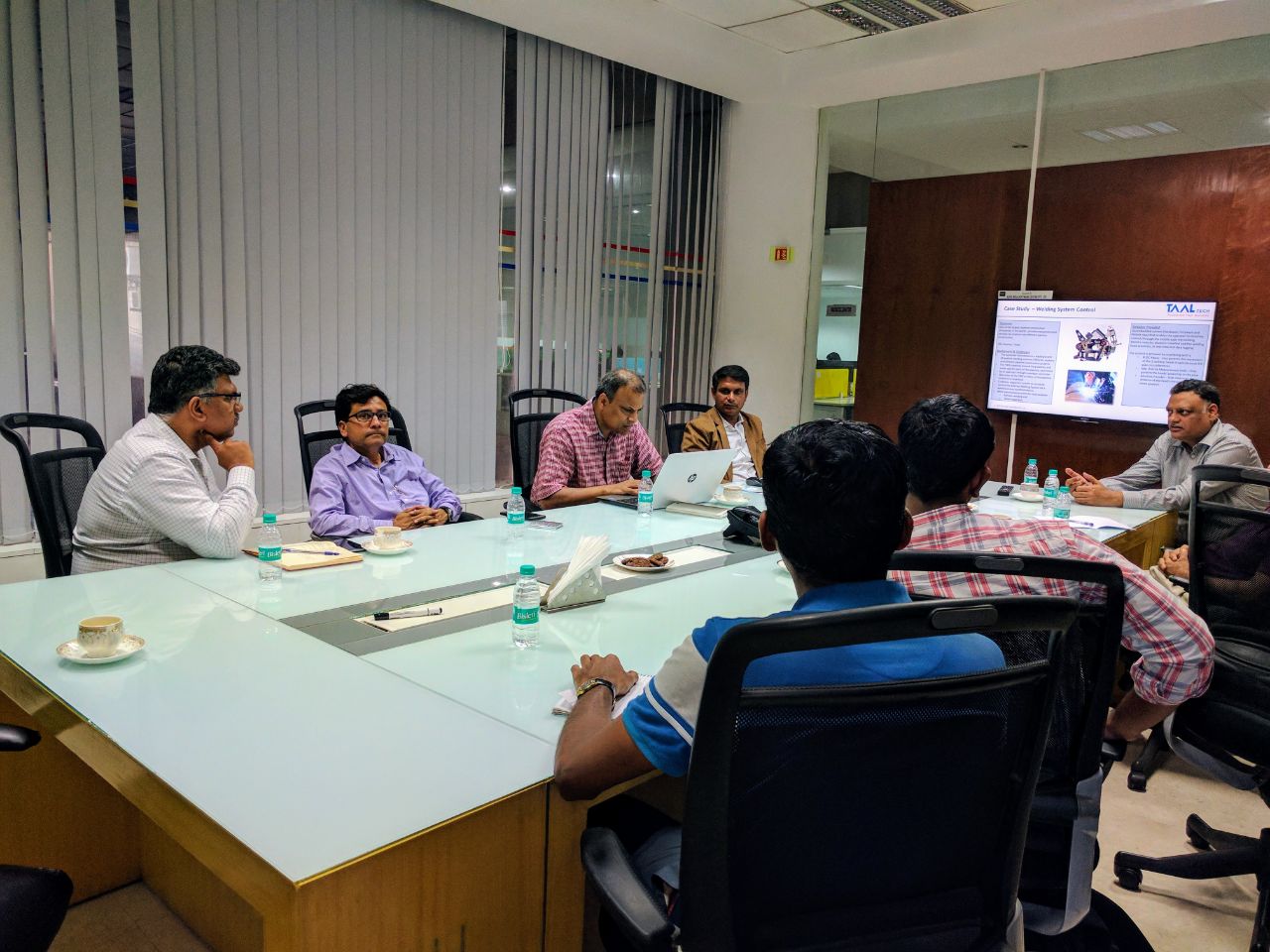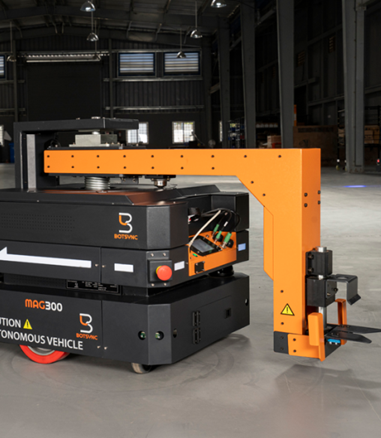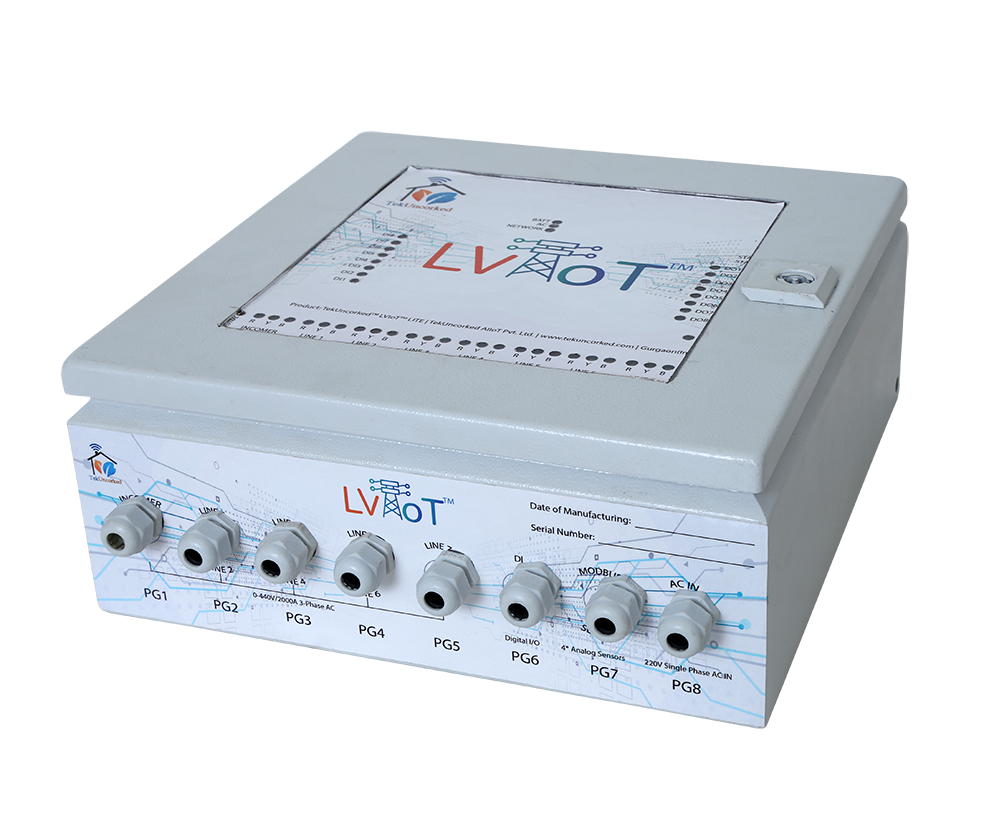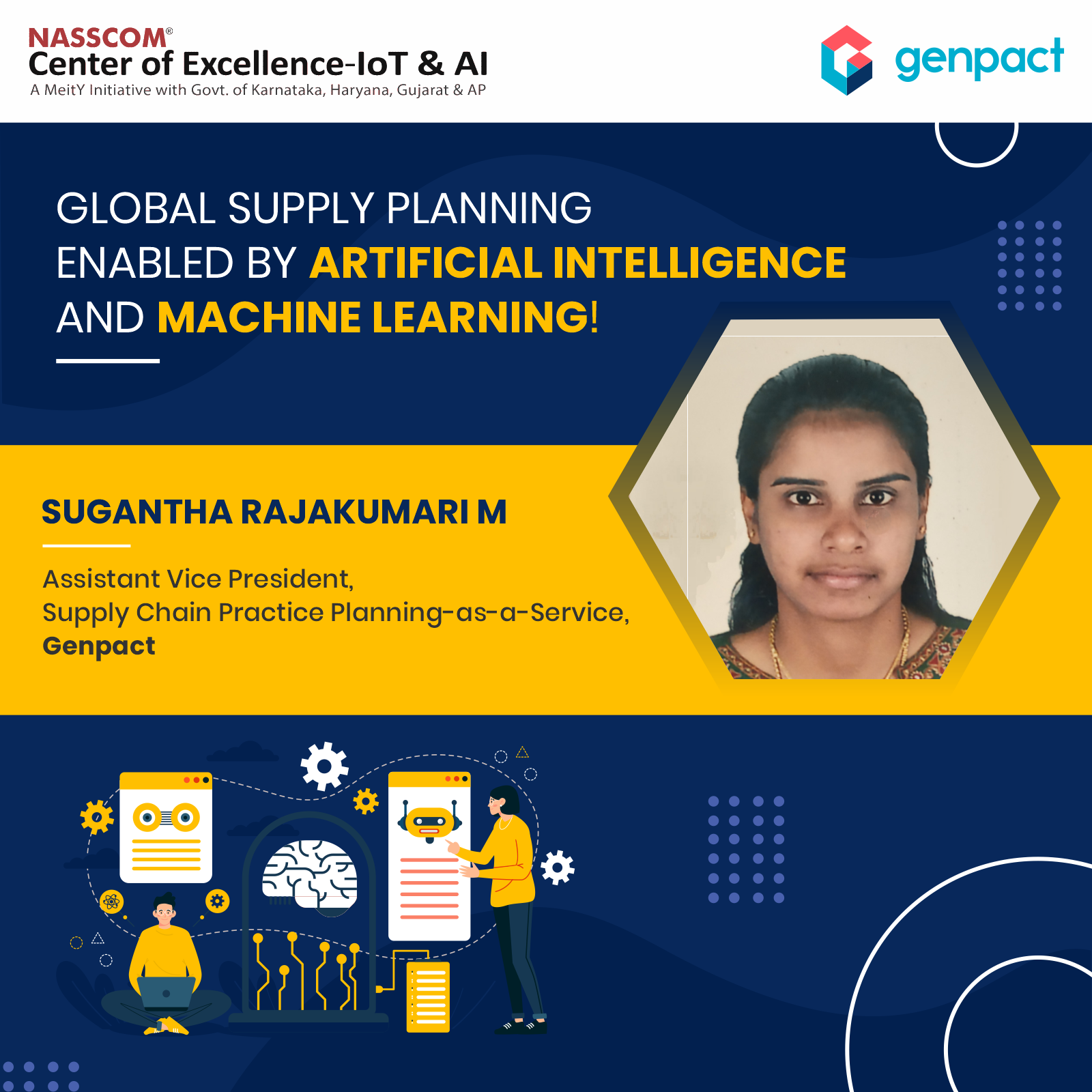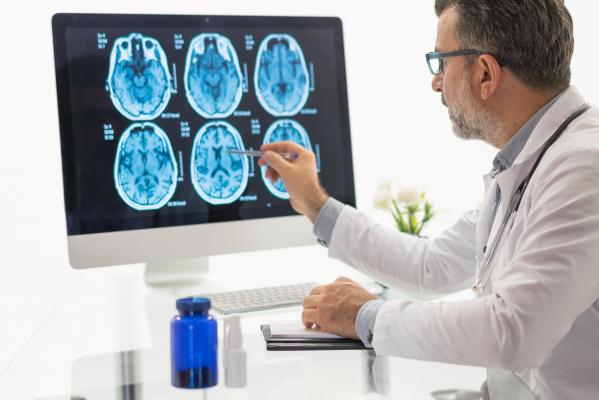With Digital health market projected to reach around $660 billion, from around $175 billion in 2019, we can see how big the demand is for customized healthcare especially for individual patients. Healthcare practitioners have started to construct treatment based on specific characteristics of a patient, such as their genes, lifestyle, and environment. This ensures the general health and improves the treatment outcome for the patient. This transition is further accelerated by AI, bringing us closer to the best healthcare solutions.

AI-Powered Diagnostics and Risk Prediction

Early Disease Detection
Every patient has unique needs, requiring AI-powered treatment plans integrated with advanced imaging technologies such as X-rays, CT scans, and MRIs. Even serious medical diseases like cancer can now be detected because of these devices’ enhanced detection capabilities of up to 20%. Deep learning models incorporated in these devices can identify malignant tumours more efficiently, supporting the radiologists.
As technology improves, these tools are increasingly being incorporated into clinical practice. Early oral cancer diagnosis has been done at Tata Memorial Centre through AI-based diagnostic technology. Similarly, Bengaluru-based startup Niramai offers a low-cost, non-invasive method appropriate for India’s diverse population by using AI-based thermography for early breast cancer screening.
Predictive Analytics for Risk Assessment
As a result of AI algorithms that can determine specified illness risk rates considering a patient’s genes, lifestyle, and family medical history, the use of predictive analytics and risk assessment is possible now. Businesses using Ayurveda and machine learning to offer individualized health assessments based on a person’s vitals and lifestyle include an AI-based wellness app called AyuRythm.
Meanwhile, the startup HealthifyMe provides risk assessments and tailored diet plans for patients with chronic conditions such as diabetes using AI-powered analytics. The process helps to identify patients who are at risk and enables them to get early medical attention.
Enhancing Initiatives with AI
Many projects are continually striving to develop AI-based risk prediction. For example, during the covid outburst, the Indian government released the Aarogya Setu app that utilized AI for tracking and forecasting COVID-19 outbreaks based on population movement and personal health data to curtail hazards at scale.
Use of AI was also beneficial for self-reported data analysis, X-ray interpretation, computed tomography (CT) image recognition, language processing, and managing drug infusions. The accuracy observed from machine learning technology (97.25%) is on par with humans (97.53%). ML helped in solving complex relationships with better judgment.
Also, the USA’s All of Us Research program seeks to collect health information from diverse populations to provide more accurate treatment. Statistics show that targeted therapies lead up to 30% better patient outcomes for the participants in the program.
Personalized Treatment Recommendations

Drug Discovery and Development
AI enables drug discovery by developing predictive models for complex chemical processes and identifying potential drug targets. AI algorithms drastically accelerate drug development, ensuring that the innovative treatments are delivered on time. In 2024, first AI designed drug got its FDA IND-approval. Indian companies like, Bugworks Research, a Bengaluru-based biotech company, uses AI-driven drug development to create the future of antibiotics.
Even the Indian tech giants like Tata Consultancy Services (TCS) assists pharmaceutical industries both in and outside India by applying GenAI to computational drug discovery.
Adjusting Treatment Optimization
AI is transforming the treatment protocol development by analyzing massive volumes of patient data to find out the best treatment and dosages and combinations of medicines. Clinical professionals can now practice cognitive-assisted medicine by using platforms such as IBM Watson Health, thus improving the patient’s outcomes.
Watson Health can process large volumes of patient data, including medical records, lab results, research literature, and genomic information, to identify patterns and generate personalized treatment plans. The platform can provide real-time suggestions and potential treatment options based on the analyzed data, assisting clinicians in making informed decisions during patient consultations. Even our Indian AI startup, Qure.ai, has developed algorithms that assist doctors in remote areas to scan chest X-rays to detect tuberculosis and thus treat millions of people. Their AI solution optimises and enhances treatment by allowing AI to analyse medical image data, promoting early disease detection, faster diagnosis, and a more targeted plan of treatment leading to better outcomes for patients with timely intervention and personalized care pathways, especially targeting areas such as stroke care, lung cancer, and tuberculosis screenings where early detection is critical.
AI-Driven Patient Monitoring and Engagement

Remote Patient Monitoring
AI analytics combined with wearable devices enable comprehensive patient monitoring, ensuring early intervention when needed. Companies like Livongo have shown that remote monitoring can increase patient compliance by more than 50%, thereby significantly reducing hospital readmission rates.
On the other hand, Dozee, an Indian startup, provides AI-powered remote health monitoring solutions for cardiac patients, allowing early detection of potential issues without requiring hospital visits. Dozee also has rolled our an AI-powered Remote Parent Monitoring (RPM) service designed to help NRIs (Non-Resident Indians) remotely monitor their parents’ health in India. According to a press statemnet, Dozee Shravan is already trusted by over 280 hospitals across India, the USA, and Africa, Dozee has transformed hospital care with its Early Warning System, helping prevent critical emergencies and reducing ICU admissions by up to 50%.
Personalized Health Coaching
The digital health transformation in India has reached an unprecedented growth stage with AI powered health coaching platforms emerging as the important bridge to connect healthcare providers and patients. MFine, Tata Health, and HealthifyMe are some of the examples of such companies. They take advantage of technology to develop and implement the use of virtual assistants, chatbots, and predictive analytics.
AI-powered virtual health coaches are one of the ways to address various healthcare needs of the Indian population, especially when it comes to major medical conditions. Patients can now have real-time control over their health through the use of health monitoring wearables and smartphone apps, which help them choose the most beneficial ways to live. Despite the fact that wearable devices have already been integrated into the digital health system, there are still obstacles to be overcome, such as digital literacy, internet accessibility, and cost of technology in the Tier 2 and Tier 3 cities.
Notwithstanding these obstacles, health coaching powered by AI is increasing its market share in India, even though the regulatory frameworks are still in the process of adapting in order to permit innovation in this field without undermining patient data safety.
Challenges and Ethical Considerations in AI Healthcare

Data Bias and Fairness
AI algorithms may carry biases that lead to unfair healthcare access. If the training data is not diverse, AI may not function well for particular population groups. Fairness audits are required for fair healthcare access. AI diagnostic tools trained with Western datasets do not always function at their best for India’s genetic diversity. Indian research institutions are now working on training AI models with region-specific datasets.
Data Privacy and Security
With the increasing adoption of AI in healthcare, data security and privacy have emerged as major concerns. India’s Digital Personal Data Protection Act (DPDPA) 2023 aligns with global frameworks like HIPAA (U.S.) and GDPR (Europe), ensuring that patient data is safeguarded while promoting interoperability. However, India faces unique challenges:
- Regulatory Ambiguity – While DPDPA provides a framework, specific healthcare-focused data regulations are still evolving.
- Data Localization – Unlike GDPR, India mandates data localization, requiring sensitive personal health data to be stored within the country. This impacts global healthtech players operating in India.
- Consent Management – The DPDPA emphasizes explicit consent, meaning AI-driven platforms must adopt robust mechanisms to ensure informed patient consent while handling sensitive data.
- Interoperability and Integration – The Ayushman Bharat Digital Mission (ABDM) aims to create a unified digital health ecosystem, but integrating AI-based personal health coaching with public health infrastructure remains a challenge.
Despite these challenges, AI-powered health coaching is gaining traction in India, with regulatory frameworks gradually adapting to enable innovation while ensuring patient data security.
Regulatory Landscape and Adoption
The adoption of AI technologies in healthcare faces challenges worldwide. Balancing innovation with patient safety is crucial. Stricter regulations on AI integration can improve trust and adoption. The Indian Council of Medical Research (ICMR) has introduced guidelines for AI-based healthcare solutions, ensuring their ethical deployment in clinical settings.
The Future of AI in Personalized Healthcare
AI, in conjunction with technologies like IoMT and blockchain, supports better patient care. IoMT enables easy data sharing, and blockchain ensures secured health records, which improves trust on AI applications.
Steps for Healthcare Professionals Healthcare professionals can integrate AI tools fairly by:
- Education: Seek education on AI application in healthcare.
- Pilot Programs: Initiating small-scale AI project to gauge impact.
- Partnership: Collaborating with the innovative startups in co-creating AI solutions or adopting the available solutions via trusted sources.
- Awareness: Being updated on the AI innovation in the industry.
Conclusion
AI revolutionizes the realm of personalized healthcare by enhancing diagnostics, treatment recommendations, and patient engagement. However, ethical concerns and regulatory challenges must be addressed for its success. The future of AI-driven personalized medicine is just beginning, and as India embraces these innovations, the healthcare landscape is poised for transformative change.



